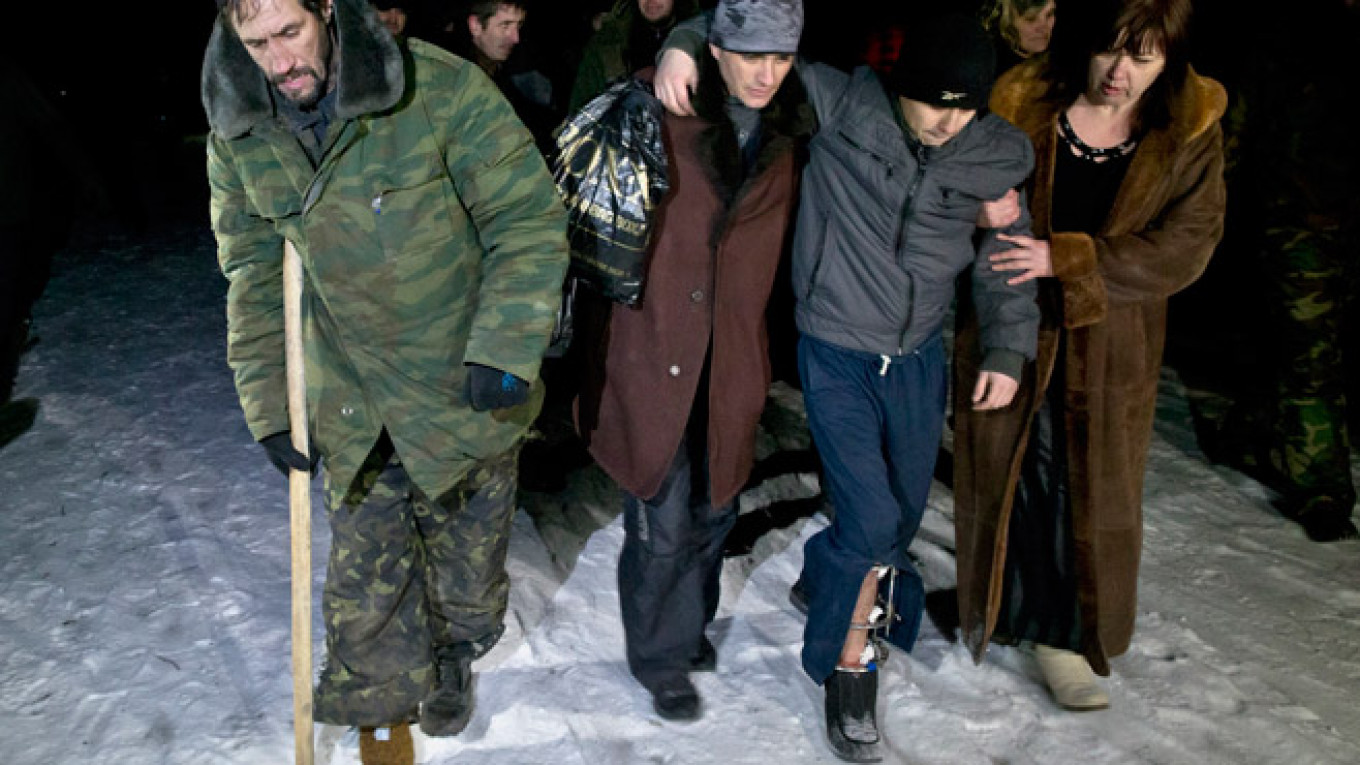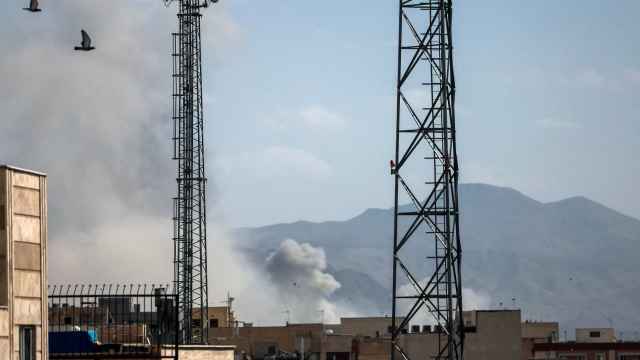KIEV — Both warring sides in eastern Ukraine are perpetrating war crimes almost daily, including torturing prisoners and summarily killing them, the Amnesty International rights group said in a report.
Amnesty said in a statement that it has heard from former captives of both Ukrainian government and separatist forces who say they faced savage beatings, torture with electric shocks, kicking and stabbings.
Concern about the treatment of prisoners comes as Ukrainian authorities face scrutiny this week for publicly parading two men they say were Russian soldiers captured while fighting alongside separatists.
Hundreds of Ukrainian troops are believed to have been captured by rebel forces in the yearlong war that has claimed more than 6,100 lives. Both sides routinely accuse one another of mistreating captives. Under a February peace agreement, all war prisoners had been due for release in early March, but little progress has been achieved.
Amnesty says it interviewed 17 captives of the separatists and another 16 held by government forces for its report, which was released Friday.
"In the shadow of eastern Ukraine's still-smoldering conflict, our on-the-ground research shows that accounts of detainee torture are as commonplace as they are shocking," Amnesty International representative John Dalhuisen said.
The mistreatment cataloged in the Amnesty report included instances of prisoners being hung from the ceiling, deprived of sleep for days and threatened with death.
"The Ukrainian authorities must investigate all allegations of war crimes and other abuses, open files and collect evidence of abuses by separatist forces and bring to justice all those responsible for perpetrating such heinous acts," Dalhuisen said.
The group is urging UN agencies and experts to visit detention sites in Ukraine to meet those being held by both sides.
Amnesty said the worst abuse tends to occur during the first days of captivity and that groups operating largely outside the chain of command are the most violent.
"The situation on the separatist side is particularly chaotic, with a variety of different groups holding captives in at least a dozen known locations," Amnesty said.
It identified Ukraine's Right Sector nationalist militia as one of the worst culprits on the pro-government side.
"Right Sector has reportedly held dozens of civilian prisoners as hostages, brutally torturing them and extorting large amounts of money from them and their families," the group said.
Amnesty says attempts to get Ukrainian authorities to address complaints over Right Sector have been ignored.
The Ukrainian Security Service said Friday it is open to dialogue with international rights organizations and said it will meet with Amnesty to discuss the report.
Eduard Basurin, a spokesman for rebel forces in the separatist stronghold of Donetsk, refuted Amnesty's findings.
"They constantly make these accusations but they are never able to provide any evidence," Basurin told The Associated Press by telephone.
But Amnesty said it has corroborated the accounts it collected with evidence such as X-rays of broken bones, medical records and photographs of injuries.
Ukraine's security services have been criticized for their public show this week of two men they say are Russian intelligence operatives fighting along pro-Moscow rebels. The men, who have been identified as Yevgeny Yerofeyev and Alexander Alexandrov, were interviewed by journalists while lying in their hospital beds and showing clear signs of physical discomfort.
The Organization for Security and Cooperation in Europe, which is monitoring a shaky truce in Ukraine, has expressed misgivings over the government's treatment of the two prisoners.
"It's important that very widely subscribed-to human rights standards be adhered to, and that does not include parading them in front of the media," said OSCE spokesman Michael Bociurkiw.
Bociurkiw said both sides in recent days have resumed using highly destructive and inaccurate multiple rocket launchers.
Ukrainian military spokesman Andriy Lysenko said Friday three Ukrainian troops had died and another 12 were wounded in the previous day's unrest. Lysenko said most casualties were sustained near the eastern rebel-held city of Donetsk, where OSCE has seen intensified rocket fire.
Amid the tensions, representatives of Ukraine, Russia, the rebels and the OSCE held the so-called Contact Group's meeting in the Belarussian capital to discuss various military, political and economic issues related to February's deal but didn't announce any immediate progress.
Speaking after the meeting, OSCE envoy Heidi Tagliavini voiced hopes that several working groups set up to consider various aspects of the February peace deal would help implement it. The following round of talks is set for June 2.
A Message from The Moscow Times:
Dear readers,
We are facing unprecedented challenges. Russia's Prosecutor General's Office has designated The Moscow Times as an "undesirable" organization, criminalizing our work and putting our staff at risk of prosecution. This follows our earlier unjust labeling as a "foreign agent."
These actions are direct attempts to silence independent journalism in Russia. The authorities claim our work "discredits the decisions of the Russian leadership." We see things differently: we strive to provide accurate, unbiased reporting on Russia.
We, the journalists of The Moscow Times, refuse to be silenced. But to continue our work, we need your help.
Your support, no matter how small, makes a world of difference. If you can, please support us monthly starting from just $2. It's quick to set up, and every contribution makes a significant impact.
By supporting The Moscow Times, you're defending open, independent journalism in the face of repression. Thank you for standing with us.
Remind me later.






